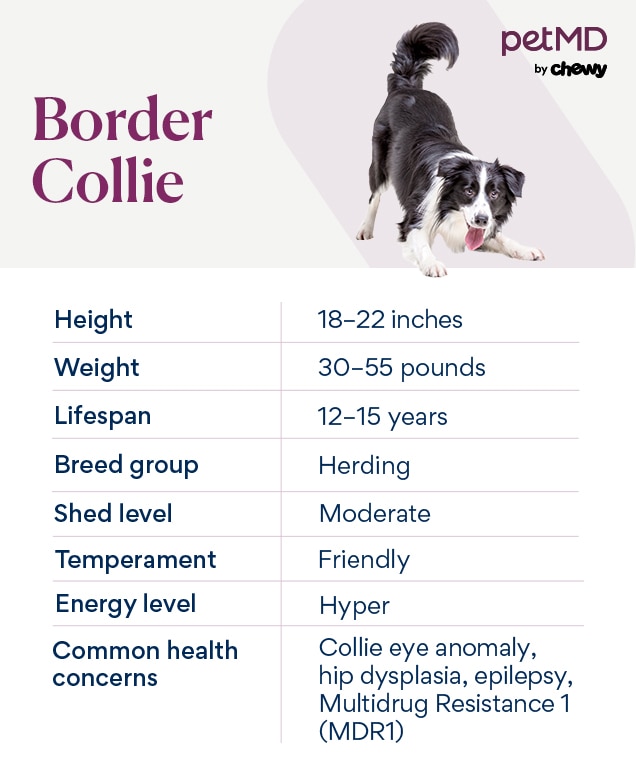Feeding a Border Collie puppy the right amount is crucial. Puppies need proper nutrition for growth and health.
Border Collies are active and intelligent dogs. They require a balanced diet to support their energy levels and development. Determining the right amount of food can be challenging. Puppies grow quickly and their needs change. Too little food can stunt growth, while too much can lead to obesity.
Understanding the right feeding practices helps ensure your puppy stays healthy. In this guide, we’ll explore how much you should feed your Border Collie puppy. We’ll cover portion sizes, feeding schedules, and tips for proper nutrition. This way, you can provide the best care for your new furry friend.
Feeding Basics
Feeding your Border Collie puppy correctly ensures they grow strong and healthy. Understanding their nutritional needs and proper portion sizes is crucial. Puppies require specific nutrients for their rapid growth and development. Let’s dive into the feeding basics for your furry friend.
Nutritional Needs
Border Collie puppies need a balanced diet rich in protein. Proteins support muscle growth and repair. Carbohydrates provide energy for their active lifestyle. Healthy fats are essential for brain development and a shiny coat. Vitamins and minerals are vital for overall health. Make sure their food contains these nutrients.
Portion Sizes
Portion sizes vary based on your puppy’s age and weight. Puppies eat more frequently than adult dogs. They need small meals several times a day. Follow the feeding guidelines on your puppy food packaging. Your vet can also help determine the right portion sizes. Adjust portions as your puppy grows. Overfeeding can lead to obesity, so monitor their weight regularly.
Puppy Growth Stages
Feeding your Border Collie puppy the right amount of food is crucial. Understanding their growth stages helps you provide the best nutrition. Each stage has different needs and feeding requirements.
Newborn To 8 Weeks
During the first eight weeks, Border Collie puppies rely on their mother’s milk. This milk provides essential nutrients for growth and immunity. Puppies should feed every two hours. By four weeks, you can start introducing soft puppy food. Mix the food with warm water or puppy milk replacer. This creates a mushy texture, easy for puppies to eat. Always ensure fresh water is available.
8 To 16 Weeks
At eight weeks, puppies are ready to transition to solid food. Feed them high-quality puppy food rich in protein and fats. Feed them four times a day in small portions. Use the feeding guidelines on the food packaging. Adjust the amount based on your puppy’s activity level and weight. Monitor their weight gain and growth closely. Gradually reduce the feeding frequency to three times a day by 16 weeks.
Choosing The Right Food
Feeding your Border Collie puppy the right food is essential for their growth and development. With so many options available, it can be overwhelming to decide the best diet for your furry friend. This section will help you understand the various types of food and make an informed choice.
Commercial Vs Homemade
There are two main types of food you can choose for your Border Collie puppy: commercial and homemade. Both have their pros and cons.
| Type | Pros | Cons |
|---|---|---|
| Commercial Food |
|
|
| Homemade Food |
|
|
Dry Vs Wet Food
Next, let’s discuss the differences between dry and wet food. Both options have their own set of benefits and drawbacks.
| Type | Pros | Cons |
|---|---|---|
| Dry Food |
|
|
| Wet Food |
|
|

Credit: zigzag.dog
Feeding Schedule
Creating a proper feeding schedule for your Border Collie puppy is essential. It helps in their growth and development. A well-planned schedule ensures they get the right nutrients at the right time. Let’s delve into how often you should feed your puppy and how to adjust as they grow.
Frequency Of Meals
In the early months, your Border Collie puppy needs frequent meals. Here’s a general guide:
| Age (months) | Meals per Day |
|---|---|
| 0-3 | 4 times |
| 3-6 | 3 times |
| 6-12 | 2 times |
Feeding them four times a day at first helps with digestion. It also prevents overeating and maintains their energy levels. As they grow older, you can reduce the frequency to three times a day by the third month. By six months, twice a day is sufficient.
Adjusting As They Grow
As your Border Collie puppy grows, their nutritional needs change. Adjusting the feeding schedule is important. Here are some tips:
- Monitor Weight: Ensure your puppy is gaining weight at a healthy rate.
- Watch Activity Levels: More active puppies might need more calories.
- Consult Your Vet: Regular check-ups can help adjust the diet as needed.
By keeping an eye on their growth and activity, you can tweak their feeding schedule. This ensures they receive the right amount of food and nutrients.
Signs Of Overfeeding
Feeding your Border Collie puppy the right amount is crucial. Overfeeding can lead to several health issues. It’s important to recognize the signs of overfeeding early. This helps keep your puppy healthy and active.
Weight Gain
One clear sign of overfeeding is weight gain. Border Collie puppies should maintain a lean and fit body. Excess weight can put stress on their joints. This can lead to long-term health problems. Use a scale to monitor your puppy’s weight regularly. Check with your vet if you notice rapid weight gain.
Lethargy
Lethargy is another sign of overfeeding. Overfed puppies often feel sluggish and tired. They may lack the energy to play or exercise. This can affect their overall development and growth. Ensure your puppy stays active and alert. Adjust their diet if you notice signs of lethargy.

Credit: www.lovelybordercollie.com
Signs Of Underfeeding
Ensuring your Border Collie puppy gets the right amount of food is crucial. Underfeeding can lead to various health problems. It’s important to recognize the signs of underfeeding to keep your puppy healthy and happy.
Weight Loss
One clear sign of underfeeding is weight loss. Border Collie puppies should grow steadily. If your puppy is losing weight, it’s a red flag.
Monitor your puppy’s weight weekly. Compare it to growth charts for Border Collies. If your puppy’s weight is below the average range, it’s time to adjust their food intake.
You can also check their body condition. Feel their ribs and spine. If they feel too prominent, your puppy may need more food.
Lack Of Energy
A well-fed Border Collie puppy should be active and playful. A lack of energy might indicate underfeeding.
Observe your puppy’s behavior. Are they sleeping more than usual? Do they seem less interested in play? These can be signs of low energy levels due to insufficient nutrition.
Healthy puppies have bursts of energy. If your puppy is lethargic, it might be time to reassess their diet.
Common Feeding Mistakes
Feeding a Border Collie puppy correctly is essential for their growth and health. However, there are common feeding mistakes that many owners make. Here are some of the most frequent errors to avoid.
Free Feeding
Free feeding means keeping food available to your puppy at all times. This practice can lead to overeating. Overeating can cause obesity and other health issues. Puppies need structure. It is better to feed them at set times. This helps in maintaining their weight and promoting good eating habits.
Inconsistent Portions
Providing inconsistent portions is another common mistake. It is important to measure the food accurately. Feeding too much or too little can affect their growth. Use a measuring cup. Follow the feeding guidelines on the food package. Consistency is key to proper nutrition.
Consulting A Veterinarian
Feeding a Border Collie puppy can be tricky. Their nutritional needs change as they grow. Consulting a veterinarian is vital. A vet can provide expert advice on feeding schedules and portion sizes.
Creating A Diet Plan
A vet can help create a diet plan. This plan ensures your puppy gets the right nutrients. Border Collie puppies need balanced meals. A vet will recommend foods rich in proteins and fats.
Puppies also need vitamins and minerals. The vet will consider your puppy’s age and weight. This helps in tailoring the diet to its specific needs. A well-planned diet supports growth and energy levels.
Regular Checkups
Regular checkups are crucial for your puppy’s health. Vets monitor growth and adjust the diet as needed. They can spot any health issues early. This keeps your puppy on track for healthy development.
During checkups, discuss any concerns with the vet. They can provide tips for feeding challenges. Regular visits build a strong foundation for your puppy’s future health.

Credit: www.petmd.com
Frequently Asked Questions
How Much Food For A Border Collie Puppy?
A Border Collie puppy should be fed around 1. 5 to 2 cups of high-quality puppy food daily. Divide this amount into three to four meals.
What To Feed A Border Collie Puppy?
Feed your Border Collie puppy high-quality, protein-rich puppy food. Ensure it contains essential nutrients and is designed for active breeds.
How Often Should I Feed My Border Collie Puppy?
Feed your Border Collie puppy three to four times a day. This helps maintain their energy levels and supports healthy growth.
When To Switch Border Collie Puppy To Adult Food?
Switch your Border Collie puppy to adult food around 12 months of age. Monitor their growth and consult your vet for guidance.
Conclusion
Feeding a Border Collie puppy requires careful attention to their needs. Offer balanced meals, and adjust portions as they grow. Monitor their weight and energy levels. Consistent feeding routines support healthy growth. Remember, consult your vet for personalized advice. Proper nutrition ensures a happy, active puppy.
Keep an eye on their development. Adjust diet as needed. Your puppy’s health depends on you. Make informed choices for their well-being.
